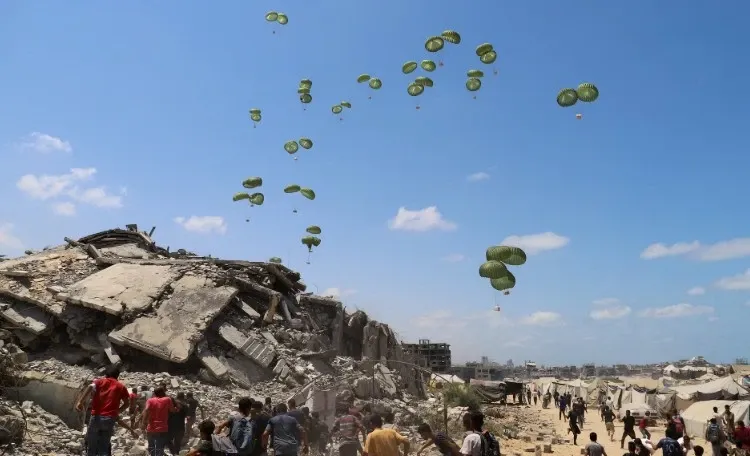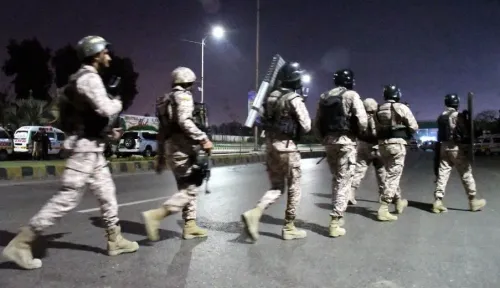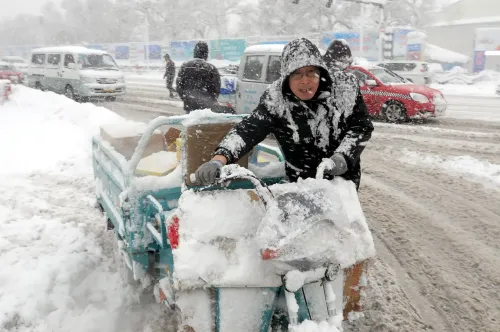Have 161 Aid Packages Been Airdropped into Gaza Amid Rising Famine?

Synopsis
Key Takeaways
- 161 aid packages were airdropped into Gaza.
- Participating countries included Jordan and the UAE.
- About 106 tonnes of food and supplies were delivered.
- Starvation-related deaths have surged in the region.
- The UN has condemned the humanitarian crisis in Gaza.
Jerusalem/Amman, Aug 18 (NationPress) In a significant humanitarian effort, 161 packages of food were airdropped over the Gaza Strip as part of an aid initiative involving nine nations, according to the Israeli military. This comes as the region grapples with the dire consequences of a famine that has intensified after nearly two years of conflict.
The countries participating in this airdrop included Jordan, the United Arab Emirates, Germany, Belgium, France, Italy, the Netherlands, Denmark, and Indonesia, as reported by the military on Sunday.
According to a statement from the Jordanian Armed Forces, approximately 106 tonnes of food and essential supplies were delivered during this operation, as noted by the Xinhua news agency.
The Israeli army indicated that this operation was executed in alignment with directives from the political leadership, countering claims of intentional starvation.
Commencing in late July, the military coordinated this airdrop amid increasing global pressure as the famine worsened in the region.
This operation took place a day after Israeli Prime Minister Benjamin Netanyahu faced widespread international criticism from European leaders, Arab nations, and families of hostages due to plans to assert control over Gaza City.
The United Nations Secretary-General, Antonio Guterres, labeled the proposed actions as a "dangerous escalation" that could exacerbate the already severe conditions for millions of Palestinians.
Volker Turk, the UN High Commissioner for Human Rights, urged the Israeli government to prioritize saving civilian lives by allowing unhindered humanitarian aid to flow.
Following the onset of a strict blockade by Israel in early March, which restricted food and essential supplies, deaths from starvation have surged in Gaza. The blockade was briefly lifted in May, allowing minimal aid, which has been distributed through a controversial framework initiated by the Gaza Humanitarian Foundation, supported by the US and Israel.
Recent reports from the United Nations Office for the Coordination of Humanitarian Affairs indicate that nearly 1,400 individuals have perished and over 4,000 have been injured while trying to access food since then.
Experts and humanitarian organizations have criticized these airdrops as insufficient and unsafe, urging Israel to facilitate more aid truck entries and assist in rebuilding Gaza's devastated health infrastructure.
Gaza health authorities report a growing famine crisis, with hospitals recording seven fatalities in the past 24 hours, including two children, attributed to hunger and malnutrition. The total starvation-related deaths have now reached 258, with 110 of those being children.
Israel maintains that there is no starvation in Gaza and claims the situation has been exaggerated, nearly 22 months after it initiated its offensive in response to the Hamas-led attacks on October 7, 2023, which resulted in approximately 1,200 fatalities and around 250 hostages.










